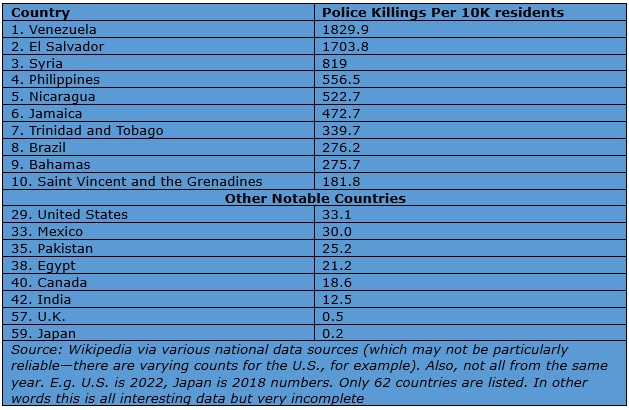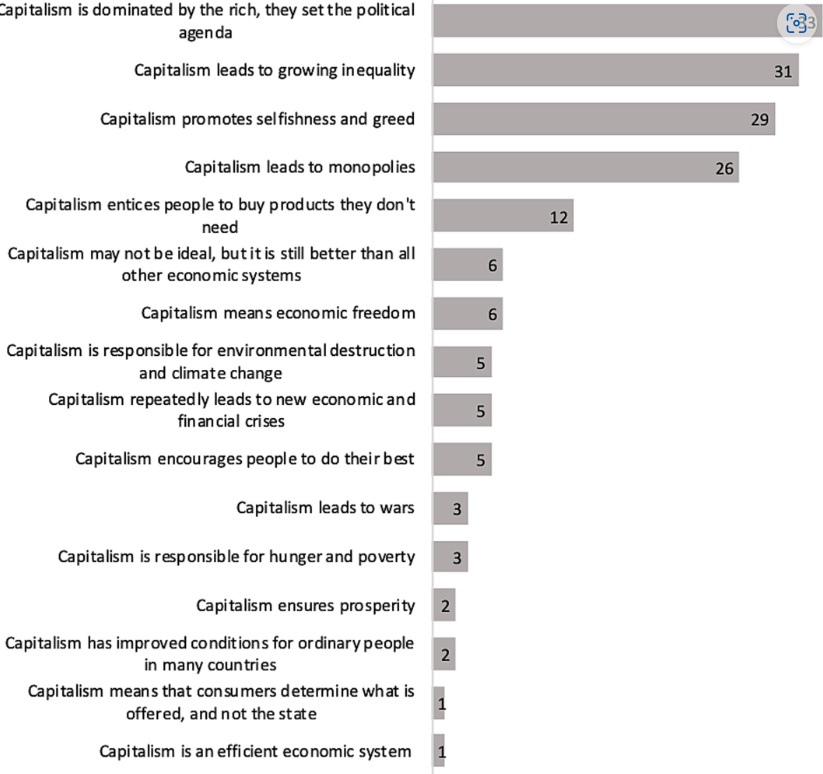So we were having drinks with a woman who is a consultant and she tells us of doing diversity work for the foundation of a large corporation that funds a BIPOC organization. Such work brought her to a meeting the BIPOC organization held at a church they rented in a rural part of Kentucky. A very diverse group of people, as one would expect, were part of the meeting, including someone who insisted participants needed to hear from her ancestors…who are, it is very important to point out, dead. So to learn from this person’s ancestors the group sat quietly in this church in rural Kentucky straining to gain wisdom from the dearly departed. Towards the end of the meeting, participants were required to state how they were harmed during the meeting, which led to one participant accusing another of white supremacy for using data during the meeting.
But before you form any opinions of what we just recounted it’s important to understand that before the meeting ended the church was surrounded by RVs filled with a group of members of the church who were irate that their building was being used by this BIPOC group. What set the church members off was a social media post by the BIPOC group welcoming people to come to the meeting, including and especially trans people, which was apparently a bridge too far for the church members. Eventually a sheriff arrived and angrily told the BIPOC group they needed to leave, though he didn’t say what law they were breaking that required their departure. The members of the BIPOC group decided leaving was not a bad idea given they were surrounded by an angry rural church mob that was aided by law enforcement with little interest in the law or the constitutional right of freedom of assembly. If the RV mob instead of threatening the BIPOC group rather held up giant Excel graphs in protest perhaps we could muster a sliver of sympathy.
At any rate, the sheriff was able to convince the church members to pull their RVs back so the BIPOC group could drive away safely. Why do we tell this story (and remember it is second hand and we cannot verify any of it)? As the character Snot Boogie says at the end of the first scene of the first episode of the first season of The Wire, “Got To, This America man.” And we also tell stories of police violence around the world, unfavorable views of capitalism and Chinese Netizens irate at an Apple ad. It’s this week’s International Need to Know, the bonfire of international information, the vanity of global data.
Without further ado, here’s what you need to know.
Stuart Copeland is a Jerk
A tweet by Samuel Sinyangwe about the high rate of police violence in Brazil drove us to examine such data around the world. Venezuela has the dubious distinction of the country with the highest rate of killings by law enforcement at nearly 2000 per ten million people. The list of countries is a murderer’s row of dysfunctional or oppressive governments with El Salvador* second, followed by Syria, the Philippines and Nicaragua…wait, the Philippines? Presumably that’s a result of Duterte’s tyrannical anti-drug policies which apparently Marcos is continuing. The aforementioned Brazil is 8th and as Samuel points out that’s six times the U.S. rate. But Americans shouldn’t be too proud. The U.S. has by far the highest rate of police violence among high income countries. Not only that, the U.S. police violence rate is higher than Mexico, Pakistan and Egypt. Yikes.
*El Salvador’s killings might be related to confrontations with gangs. Any El Salvadoran experts out there feel free to enlighten us
How to Make a Dollar Out of Nickelback
Capitalism is a bit like Nickleback. Everybody hates them but they play to sold out crowds. Well perhaps we stretch the analogy. Plenty of people like capitalism but it’s definitely not overly popular. Not Nickelback popular. A new paper by German scholar Ranier Zitelmann surveyed what people think about capitalism in 34 countries. He found capitalism was favored in only seven of the 34 countries: Poland, the United States, the Czech Republic, Japan, Argentina, South Korea, and Sweden. Depending on the country, there is a link between age and attitudes towards capitalism. His report states, “This is clearest in the United States, where respondents over the age of 60 have a very positive attitude towards capitalism (2.27), while younger people are neutral to slightly negative (under the age of 30: 0.90).” Low-income workers are more likely to be anti-capitalist in the countries he surveyed with the exceptions of Vietnam, Nigeria and Pakistan. Vietnam was also an exception to the rule that women are generally less favorably disposed to capitalism than men. Our theory for Vietnam being an exception in these two categories are its upward economic direction of the last decade and the fact so many Vietnamese women are doing well in business. But to use the three most underused words in the English language, we don’t know…there may be other factors involved.
China Corner: Apple of an Undiscerning Eye
There are 15,323 things we could write about China this week but we’re going to tell you about Chinese netizens becoming angry about an Apple ad featuring an employee that these Netizens asserted was a stereotypical, racist American view of what Chinese look like. However, it turns out the employee is Native American and his image has been used in a multitude of Apple ads. Even after this fact was pointed out, a Chinese cartoonist wrote, again on social media–the RV of human communications–that “he doesn’t care if the employee was Native American or not, the person’s look simply made him uncomfortable and he hopes that Apple could consider his feelings.” We don’t bring this up because it shows American culture permeates our world for good, bad and indifferent. We don’t even bring this up to note that there are many nationalists in China, as there are here in the United States, and in most countries around the world, and the trouble (plus a few minor benefits) nationalism brings to society and our world. No, we bring this up to note that any company in China, even a very successful one such as Apple, is treading in muddy, unpredictable waters and past performance does not predict future success. Apple’s latest phone apparently is not as popular as past phones in China (and perhaps not as popular in the U.S. either). And China has been mumbling about security concerns with Apple. If Apple does badly in China in the future that may reduce Apple’s profits but it will also reduce China’s economic leverage in the world. So Chinese nationalists should carefully think through their strategies (as should American nationalists). And this incident, as well as what we related in the opening, illustrates that Chinese and Americans are not as different as they think they are.




